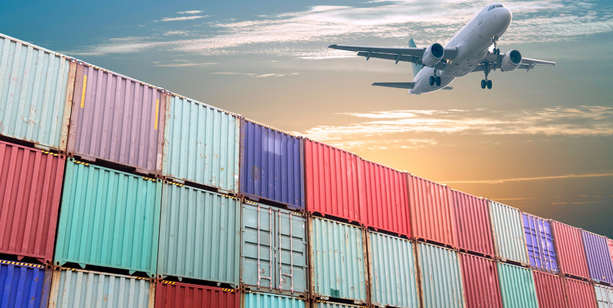- By TOP CHINA FREIGHT
- September 15, 2025
- Shipping
Table of Contents
Working with a freight broker China can dramatically improve your international shipping operations. Many importers struggle with rising shipping costs, complex customs procedures, and unpredictable transit times. A professional freight broker in China simplifies these processes, negotiates favorable rates, and ensures efficient delivery schedules. This guide explores the role of freight brokers, compares shipping options, and provides actionable strategies to optimize logistics from China.

What is a freight broker in China?
A freight broker in China acts as an intermediary between importers and carriers, managing the movement of goods from suppliers to global destinations. Brokers coordinate shipments, optimize routes, and provide solutions for customs clearance and documentation.
Services include:
- Ocean freight (FCL and LCL)
- Air freight and express shipping
- Customs clearance support
- Cargo insurance arrangements
- Real-time shipment tracking and reporting
Brokers also advise on peak season planning and shipping cost optimization. Importers benefit from local expertise, carrier relationships, and reduced risks throughout the supply chain.
How does a freight broker reduce shipping costs?
Freight brokers minimize costs using strategic planning and market knowledge:
Consolidation:
Combine LCL shipments into FCL containers for better per-unit rates.
Negotiated carrier rates:
Brokers leverage relationships to secure lower ocean or air freight costs.
Route optimization:
Selecting direct or alternative ports reduces transit time and fees.
Seasonal planning:
Avoid peak season surcharges by scheduling shipments in advance.
Cost Comparison Example
| Shipping Method | Cost (40ft Container) | Transit Time | Notes |
|---|---|---|---|
| Sea FCL | $2,700–$3,500 | 25–35 days | Bulk shipments, cost-efficient |
| Sea LCL | $45–$80 per CBM | 30–40 days | Flexible, higher per-unit cost |
| Air Freight | $5–$8 per kg | 5–10 days | Fast but expensive |
What services do freight brokers in China provide?
Freight brokers offer comprehensive services to simplify global logistics:
| Service | Description |
|---|---|
| Ocean Freight (FCL/LCL) | Booking, consolidation, container management |
| Air Freight | Fast shipment for urgent cargo |
| Customs Clearance | Documentation, duties, and compliance |
| Warehousing | Storage, inventory, and cargo consolidation |
| Cargo Insurance | Protects goods against damage or loss |
| Door-to-Door Delivery | Factory pickup to final delivery |
How long does shipping from China take with a broker?
Transit times vary depending on shipping method and destination:
| Destination Port | Sea Transit | Air Transit | Notes |
|---|---|---|---|
| Los Angeles, USA | 15–20 days | 5–7 days | Direct route preferred |
| New York, USA | 28–35 days | 6–10 days | Via Panama Canal |
| Rotterdam, Netherlands | 30–40 days | 7–10 days | Major EU hub |
| Sydney, Australia | 18–25 days | 4–6 days | Frequent shipping lines |
Freight brokers recommend routes based on cost, transit time, and cargo type, optimizing shipping schedules for importers.
What documents are required for shipping through a freight broker?

Proper documentation ensures smooth customs clearance. Freight brokers prepare and verify:
| Document | Purpose |
|---|---|
| Bill of Lading (B/L) | Shipping contract and receipt |
| Commercial Invoice | Declares product value for customs duties |
| Packing List | Cargo details: weight, dimensions, HS codes |
| Certificate of Origin | Confirms manufacturing country |
| Import License | Required for restricted goods |
| Customs Declaration | Provides shipment details to authorities |
Brokers also advise on special permits or certificates for restricted or high-value goods.
Can a freight broker handle urgent shipments?
Yes, brokers manage urgent shipments by:
- Using air freight for fast delivery
- Expedited sea freight via direct routes
- Consolidating small shipments for immediate dispatch
Brokers coordinate carriers and customs to ensure timely delivery while balancing cost and efficiency.
Why choose a local freight broker in China?
Established relationships with carriers ensure lower rates
Factory visits, inspections, and cargo monitoring
Expertise in export procedures and compliance
Adapting quickly to seasonal congestion or port delays
Case Study: Cost Optimization with a China Freight Broker
A European importer faced fluctuating sea freight rates and delayed shipments. Partnering with a Shanghai-based broker enabled them to:
- Consolidate multiple LCL shipments into FCL containers
- Choose less congested ports
- Negotiate recurring shipping discounts
Outcome :
Transit times improved by 6 days, and annual shipping costs dropped by 30%, saving over $180,000. This demonstrates the value of professional freight brokers in China for cost reduction and supply chain efficiency.
How to select the best freight broker in China?
Key considerations:
1.Experience with your product type and destination
2.Global network to coordinate carriers and delivery
3.Transparent pricing with itemized quotes
4.Customer support for real-time tracking
5.Technology for document management and logistics monitoring
Checking reviews, certifications, and client references ensures a reliable partner.
Should you use air or sea freight with a broker?

Both options have pros and cons:
| Mode | Cost | Transit Time | Best For |
|---|---|---|---|
| Sea | Lower | 25–40 days | Bulk shipments |
| Air | Higher | 5–10 days | Urgent, lightweight cargo |
Brokers often recommend combining modes for urgent yet cost-sensitive shipments.
Conclusion
Partnering with a freight broker China ensures smoother logistics, lower shipping costs, and efficient customs management. Brokers provide professional guidance, optimize transit times, and offer local expertise to streamline global supply chains.
Need a Shipping Quote?
If you want expert guidance and peace of mind, our team is ready to assist.
TJ China Freight offers tailored solutions to help businesses of all sizes ship more reliably from China.

FAQ
Q1:Can freight brokers handle both LCL and FCL shipments?
Yes, they manage LCL/FCL shipments, consolidating cargo efficiently while reducing shipping costs and transit time for international deliveries.
Q2:Do freight brokers manage customs clearance?
Absolutely. They prepare all documentation, calculate duties, and ensure compliance with import/export regulations for smooth clearance.
Q3:How can a broker reduce China shipping costs?
By consolidating shipments, negotiating carrier rates, optimizing routes, and advising on seasonal shipping strategies, brokers minimize overall shipping costs.
Q4:Are freight brokers suitable for small businesses?
Yes, they simplify LCL shipping, handle documentation, and reduce logistical complexity, making international trade manageable and cost-effective for smaller importers.
Q5:Can brokers manage urgent shipments?
Yes, through air freight or expedited sea services. Brokers coordinate carriers and customs to deliver urgent cargo on time while controlling costs.
